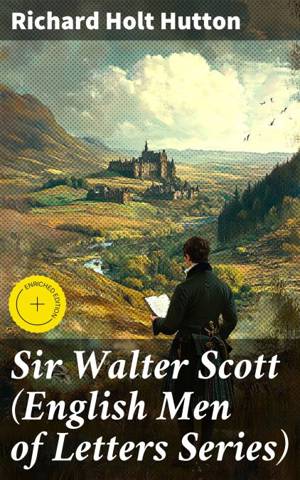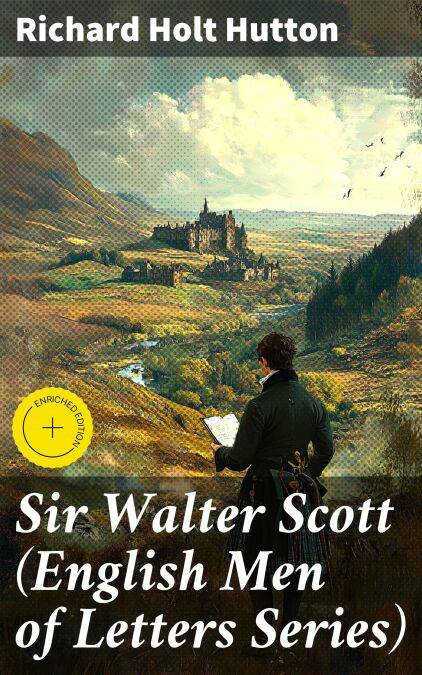
- Afhalen na 1 uur in een winkel met voorraad
- Gratis thuislevering in België vanaf € 30
- Ruim aanbod met 7 miljoen producten
- Afhalen na 1 uur in een winkel met voorraad
- Gratis thuislevering in België vanaf € 30
- Ruim aanbod met 7 miljoen producten
Zoeken
Sir Walter Scott (English Men of Letters Series) E-BOOK
Enriched edition. Exploring the Romantic Legacy of a Scottish Novelist
Richard Holt Hutton
E-book | Engels
€ 0,49
Omschrijving
In "Sir Walter Scott," part of the esteemed English Men of Letters Series, Richard Holt Hutton offers a comprehensive examination of one of Scotland's most influential literary figures. With a blend of biographical narrative and literary critique, Hutton delves into Scott's role in shaping the historical novel and the romanticism of the early 19th century. Characterized by its accessible yet erudite prose, the book situates Scott within the broader context of English literature, highlighting his innovations and thematic explorations, including nationalism, nature, and the interplay of history and fiction. Richard Holt Hutton (1826-1897) was not only a prominent journalist but also a dedicated literary critic, whose rigorous scholarship was informed by his deep engagement with the authors of his time. Hutton's interest in Scott can be traced to his wider fascination with historical narratives and the socio-political currents of the British Isles during the early 1800s. His position as an editor for influential publications allowed him to reflect on the evolving literary landscape, fostering a unique perspective on Scott's contributions. This enlightening volume is highly recommended for readers interested in the intersections of literature and history. Hutton's astute observations enhance the contemporary understanding of Scott's legacy, making this work an essential read for scholars, students, and enthusiasts of 19th-century literature.
In this enriched edition, we have carefully created added value for your reading experience:
- Hand‐picked Memorable Quotes shine a spotlight on moments of literary brilliance.
- Interactive footnotes clarify unusual references, historical allusions, and archaic phrases for an effortless, more informed read.
In this enriched edition, we have carefully created added value for your reading experience:
- Hand‐picked Memorable Quotes shine a spotlight on moments of literary brilliance.
- Interactive footnotes clarify unusual references, historical allusions, and archaic phrases for an effortless, more informed read.
Specificaties
Betrokkenen
- Auteur(s):
- Uitgeverij:
Inhoud
- Aantal bladzijden:
- 218
- Taal:
- Engels
Eigenschappen
- Productcode (EAN):
- 4064066226763
- Verschijningsdatum:
- 9/12/2019
- Uitvoering:
- E-book
- Beveiligd met:
- Digital watermarking
- Formaat:
- ePub

Alleen bij Standaard Boekhandel
Beoordelingen
We publiceren alleen reviews die voldoen aan de voorwaarden voor reviews. Bekijk onze voorwaarden voor reviews.







